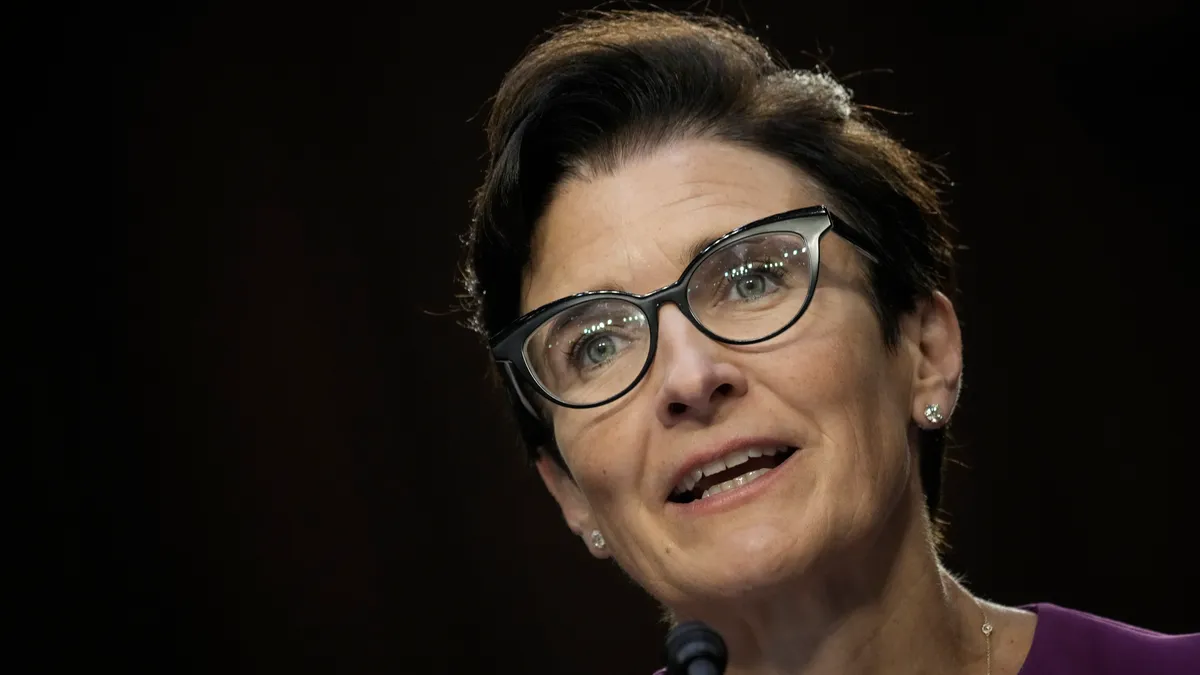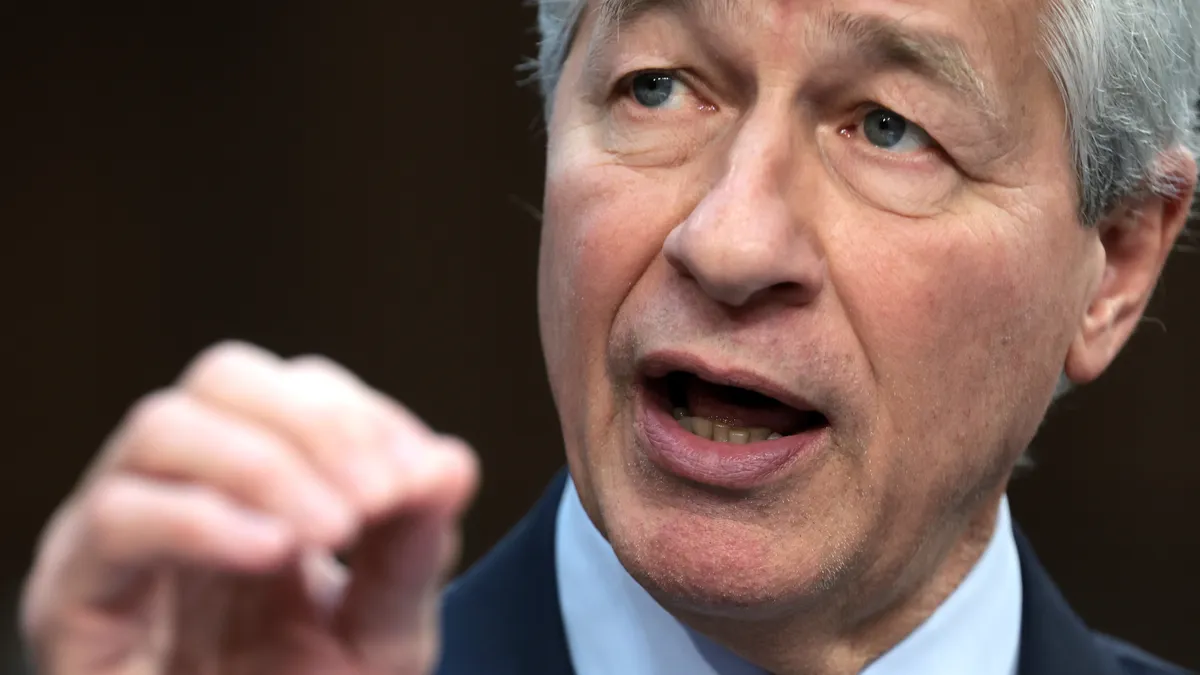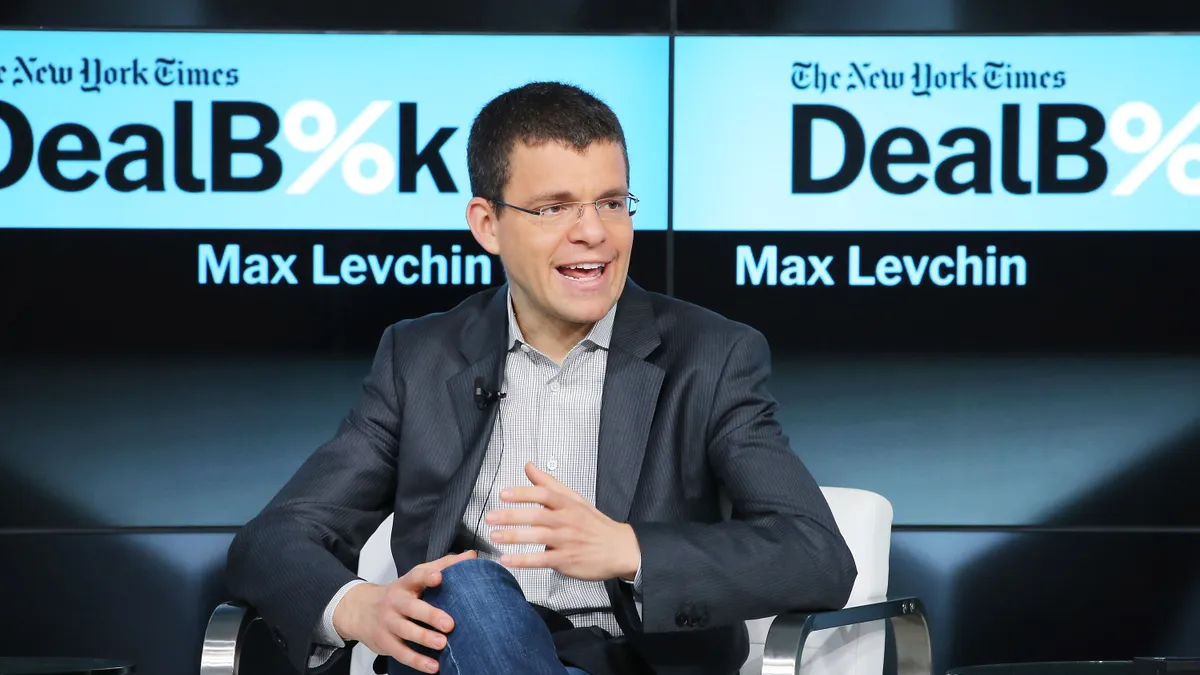Citi is giving CEO Jane Fraser a $25 million one-time equity award and adding “chair” to her title, the bank said Wednesday.
The move means all eight U.S.-based systemically important financial institutions will have consolidated their CEO and board chair roles. Three of Citi’s peers – Wells Fargo, BNY and Morgan Stanley – have done so this year, or have announced that they will.
Fraser’s award consists of restricted stock units and more than 1 million stock options that will vest or become exercisable in three, four and five years, contingent on her continued service at Citi.
In a filing Wednesday with the Securities and Exchange Commission, the bank said the award “reflects the Board’s desire to ensure management continuity, to acknowledge Ms. Fraser’s extraordinary leadership of Citi and to reflect developments in the market regarding CEO compensation.”
Indeed, the award somewhat resembles the $30 million package and chairmanship that Wells Fargo offered CEO Charlie Scharf in July – just a month after the Federal Reserve lifted its seven-year asset cap on the bank.
Citi, for its part, credited Fraser with “implementing a refreshed strategy” – namely, the multiyear tech modernization effort meant to free the bank from consent orders owing to a 2020 fat-finger incident.
“More than two-thirds of our transformation programs are at or mostly at Citi’s target state,” the bank said Wednesday.
The revamp, though, comes in tandem with workforce streamlining Fraser announced in 2023. The bank has said it would cut its headcount by 20,000 employees by 2026.
In another justification of the award, Citi cited an even longer-running strategy: the effort to extricate the bank from 14 foreign retail markets, announced shortly after Fraser became CEO in 2021. The bank announced last month it intended to sell a 25% stake in its Mexican retail arm, Banamex, to billionaire Fernando Chico Pardo for roughly $2.3 billion, ahead of a planned initial public offering.
“As we get more and more of the hard yards behind us, my excitement about what’s possible for Citi grows exponentially,” Fraser said in a statement Wednesday. “I have always had deep conviction in Citi’s potential to be a bank that embodies excellence in every way, and while I’m proud of what this team has delivered in the last five years, I know the momentum we’re building will carry us much further.”
Wells Fargo analyst Mike Mayo pushed back against Fraser’s payout in a note seen Thursday by Banking Dive. He said the award “continues a long tradition of paying in excess – or in this case at least before – proper performance.”
“We view this type of ‘retention bonus’ as a ‘double bonus’ since it is in addition to her regular annual bonus,” Mayo wrote.
Fraser will become Citi’s first executive since 2007 to serve concurrently as CEO and chair. Meanwhile, John Dugan, who has served as Citi’s chair since 2019, will become the board’s lead independent director.
“Citi is in a fundamentally different place than it was when these roles were separated,” Dugan said Wednesday. “Jane’s very deliberate plan to make Citi a simpler and more focused bank has created meaningful shareholder value. She has the vision, drive and determination to ensure that Citi not only builds on this progress but thrives in this era of both continued macro uncertainty and unprecedented innovation.”
Shareholder value ranked as another bullet point Citi listed among Fraser’s accomplishments. The bank’s stock price is up 37% in 2025 – and more than 50% from a year ago – outstripping surges by fellow lenders Goldman Sachs and Morgan Stanley.
Citi on Wednesday also credited Fraser’s “actions to build a strong executive team” at the bank – likely a reference to the lender’s efforts to bring aboard leaders such as Vis Raghavan, Andy Sieg and Tim Ryan.
Fraser would become the fourth big-bank CEO among the U.S.’s eight SIFIs to take on chair responsibilities this year. A month before Wells Fargo tapped Scharf for the dual role, BNY did the same for its CEO, Robin Vince. And Morgan Stanley CEO Ted Pick added chair to his title as of Jan. 1.
Equity awards have abounded among big-bank CEO this year, as well. Capital One granted CEO Richard Fairbank a $30 million one-time award in June after the bank closed its long-running acquisition of Discover. Additionally, Goldman Sachs disclosed in January that it would give CEO David Solomon an $80 million retention bonus. The bank gave the same deal to President John Waldron, drawing criticism from proxy advisers this spring.
The consolidation of CEO and chair roles, too, generally hasn’t found favor among proxy advisers. Glass Lewis and Institutional Shareholder Services have frequently recommended that bank shareholders vote to separate the positions.
ISS last year, for example, argued “the size and complexity of JPMorgan,” where Jamie Dimon serves as both CEO and chair, “suggests that it is difficult for any one person to run both the company and the board.”
JPMorgan countered, however, that ISS’s recommendation “fails to match the empirical evidence of the last 18 years of leadership by the current Chairman and CEO that has seen the Firm become the largest U.S. bank, outperforming our peers including those with independent chairs.”
The bank added that a consolidated CEO-chair role for Dimon “best serves the Firm and its shareholders as it focuses on enabling an orderly CEO transition to take place in the medium term.”





















